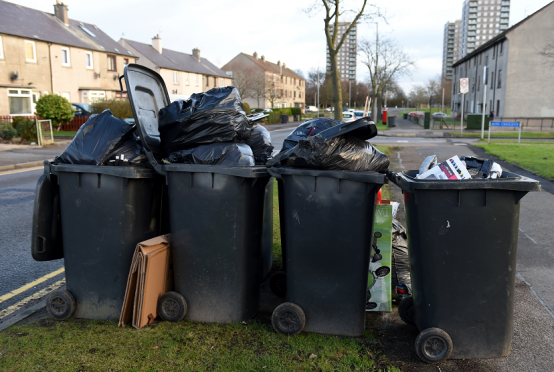Aberdeen City Council’s waste and recycling chief has defended the authority’s troubled new bin collections, claiming that the “worst of the teething troubles are now behind us”.
In March, the system underwent its most significant change in 20 years.
As well as alterations to collection routes, the council dispatched new, slightly smaller, general waste bins to households and changed the bins previously used for general waste into mixed recycling ones.
The new initiative replaced kerbside recycling boxes and bags, with the intention that residents would be able to recycle a wider range of materials.
However, the new system has been fraught with issues, and last month the council was forced to apologise after it was revealed some bins were not being emptied and some had been left so long that they were reportedly filled with maggots.
Pete Lawrence, the authority’s waste and recycling manager, said: “The service has just gone through the biggest change to services in nearly 20 years.
“There are inevitably areas where not everything goes smoothly from day one.
“Largely, the main issues have been with recycling collections, and in some parts of the city these are now close to resolution.
“The main area of difficult has been food and garden waste, where we have reorganised the rounds to ensure the collections are made on the same day as the refuse and recycling collections.
“This is a significantly more challenging exercise, because of the variability in the number of households that have gardens across the city, so matching up routes off plan has led to difficulties.”
When asked if the reaction to the new system could reduce recycling, he said: “Obviously it has not been an ideal situation.
“We ask that people bear with us, as we think the worst of the teething troubles are now behind us.
“The new services we are offering across the city are a significant improvement that will enable everyone to both do the right thing from an environmental point of view, but also help save the city money by producing less expensive to manage residual waste”
